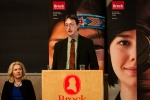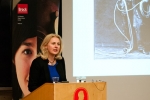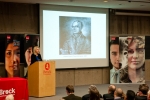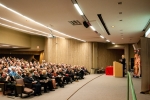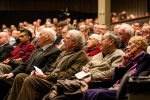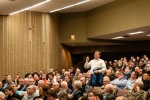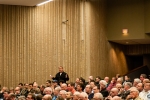2013 Lecture – Native American Freemasonry: Joseph Brant to the 21st Century

Dr. Joy Porter
Professor of Indigenous History, Hull University
Dr. Joy Porter is Professor of Indigenous History, and joined the Department in October 2012. Previously, she was Senior Lecturer and Associate Dean for the College of Arts & Humanities at the University of Swansea. She gained her M.A. and PhD from the University of Nottingham in 1990 and 1993 respectively. She has over 20 publications including 6 books, has organized two externally funded major international conferences and has held Visiting Professorships at the University of Paris, Diderot and at The Clinton Institute, Dublin. She has also delivered invited lectures across Europe and North America. The research underpinning her monograph Native American Freemasonry: Associationalism and Performance in America (University of Nebraska Press, 2011) was funded by a Leverhulme Research Fellowship. Other aspects of her work have benefited from a number of awards (AHRC, British Academy, British Association of Canadian Studies, Association of Canadian Studies in the U.S., Canadian Government Research Award). She is currently a member of the AHRC Peer Review College (History, Thought & Culture).
Lecture Summary
Freemasonry has played a significant role in the history of Native Americans since the colonial era – a role whose extent and meaning are fully explored for the first time. Her work’s overarching concern is with how Masonry met specific social and personal needs, a theme developed across three significant periods of membership: the revolutionary era, the last third of the nineteenth century, and the years following the First World War. Joy Porter places Freemasonry into historical context, revealing its social and political impact as a transatlantic phenomenon at the heart of the colonizing process. She then explores its meaning for many of the key Native leaders over time, for the ethnic groups who sought to make connections with it, and for the bulk of its American membership—the white, Anglo-Saxon Protestant middle class.
Porter contends that Freemasonry offered special access to Native Americans through its performance of ritual, an assertion borne out by a wealth of contemporary manuscripts, newspapers, pamphlets, Masonic sermons, orations, and lodge records and writings by Masonic historians and antiquarians gleaned from archives in New York, Philadelphia, Oklahoma, California, and London. Through these documents, she demonstrates that over time, Freemasonry became a significant avenue for the exchange, and perhaps even cocreation, of cultural forms by Indians and non-Indians.
For a list of Dr. Joy Porter’s publications, please click here.
To see the poster for this event, please click here.
Photos
Please click thumbnails to view photos.



